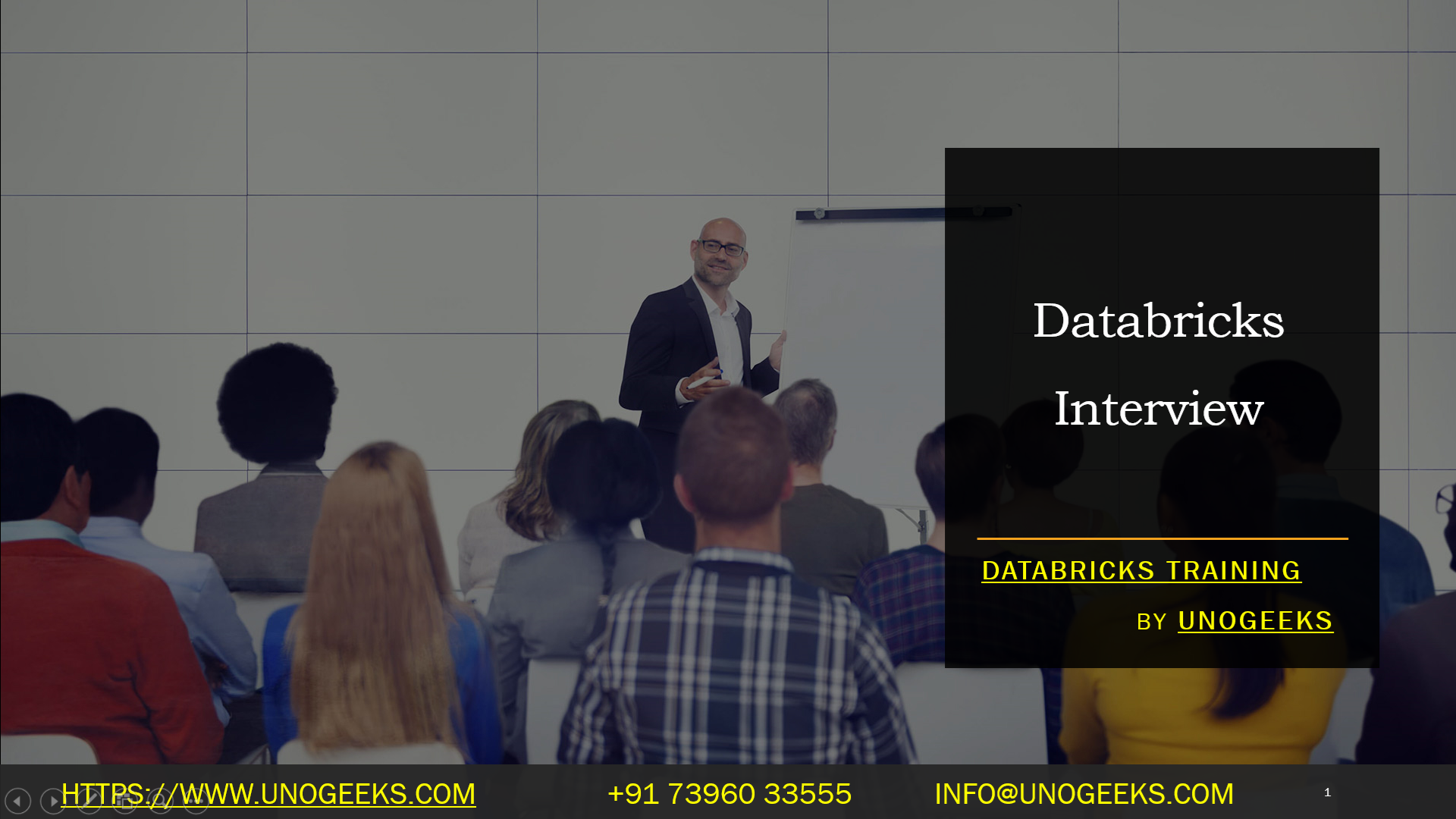Databricks Interview
Databricks Interview
Here’s a breakdown of what to expect in a Databricks interview, along with tips and sample questions:
Understanding Databricks Interviews
Databricks interviews often focus on the following core areas:
- Data Engineering: Solid understanding of data processing, ETL, data warehousing principles.
- Spark: In-depth knowledge of Apache Spark, its APIs, performance tuning, and optimizations.
- Programming: Proficiency in Python and/or Scala. SQL is a big plus.
- Cloud Technologies: Experience with cloud platforms (preferably Azure, but AWS or GCP knowledge is transferable). Understanding cloud-specific concepts for data storage, security, and networking is helpful.
- Problem-Solving: Ability to analyze complex datasets, design efficient solutions, and troubleshoot.
Types of Interview Questions
- Conceptual/Theoretical
- Explain the core components of Databricks architecture.
- Describe the difference between RDDs, DataFrames, and Datasets.
- Outline best practices for optimizing Spark jobs.
- How do you approach debugging a failing Databricks job?
- Scenario-Based
- You have a large dataset that needs cleaning and transformation; outline your Databricks workflow.
- How would you implement a real-time streaming ETL pipeline using Databricks?
- Describe security considerations you’d take in a Databricks production environment.
- Coding/Hands-on
- Write a Spark function to perform a specific data transformation task.
- Given a dataset, implement a basic machine learning model using MLlib.
- (May involve live coding or whiteboard problem-solving)
- Behavioral
- Tell me about a challenging data project you worked on, and how you overcame obstacles.
- Describe a situation where you collaborated with a team to solve a problem with Databricks.
Preparation Tips
- Brush up on your fundamentals: Revisit Spark concepts, Python/Scala, SQL syntax, and data engineering principles.
- Practice coding: Solve Databricks-specific problems on platforms like LeetCode or HackerRank. Get familiar with common Spark tasks.
- Review your projects: Be ready to explain previous projects involving Databricks or similar technologies, highlighting your decision-making process.
- Understand cloud concepts: Azure is a major plus, but have a basic understanding of cloud data storage, security, and networking concepts.
- Be prepared for behavioral questions: Think of examples that demonstrate your teamwork, problem-solving, and adaptability under pressure.
Sample Interview Questions
- What are the advantages of Delta Lake format in Databricks?
- Explain the difference between a Databricks cluster and a job.
- How would you monitor the performance of a Spark application in Databricks?
- Describe how you’d approach building a recommendation engine in Databricks.
- You encounter a “memory exceeded” error in a Spark job. What are your troubleshooting steps?
Databricks Training Demo Day 1 Video:
Conclusion:
Unogeeks is the No.1 IT Training Institute for Databricks Training. Anyone Disagree? Please drop in a comment
You can check out our other latest blogs on Databricks Training here – Databricks Blogs
Please check out our Best In Class Databricks Training Details here – Databricks Training
Follow & Connect with us:
———————————-
For Training inquiries:
Call/Whatsapp: +91 73960 33555
Mail us at: info@unogeeks.com
Our Website ➜ https://unogeeks.com
Follow us:
Instagram: https://www.instagram.com/unogeeks
Facebook:https://www.facebook.com/UnogeeksSoftwareTrainingInstitute
Twitter: https://twitter.com/unogeeks
